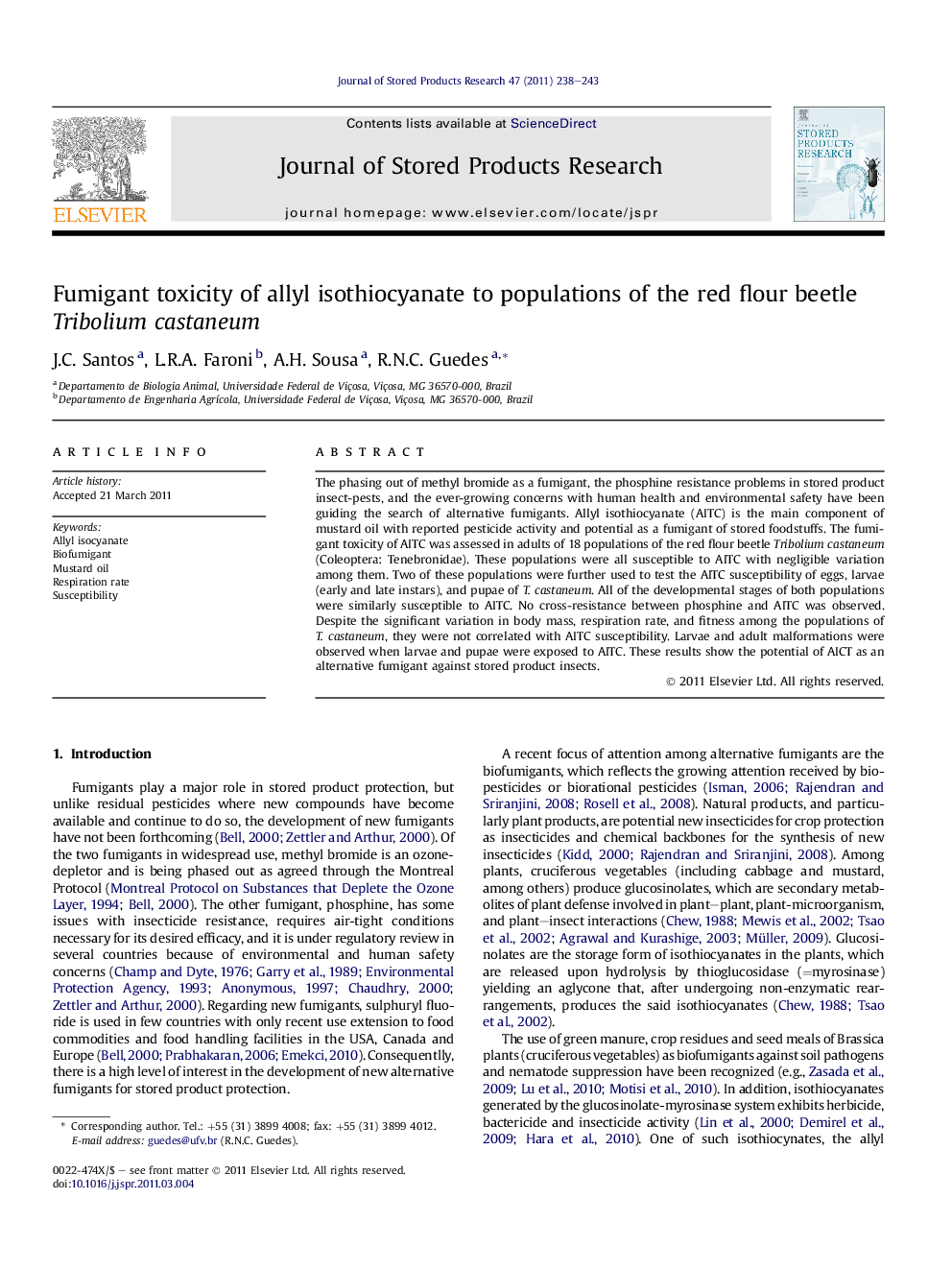| Article ID | Journal | Published Year | Pages | File Type |
|---|---|---|---|---|
| 4517213 | Journal of Stored Products Research | 2011 | 6 Pages |
The phasing out of methyl bromide as a fumigant, the phosphine resistance problems in stored product insect-pests, and the ever-growing concerns with human health and environmental safety have been guiding the search of alternative fumigants. Allyl isothiocyanate (AITC) is the main component of mustard oil with reported pesticide activity and potential as a fumigant of stored foodstuffs. The fumigant toxicity of AITC was assessed in adults of 18 populations of the red flour beetle Tribolium castaneum (Coleoptera: Tenebronidae). These populations were all susceptible to AITC with negligible variation among them. Two of these populations were further used to test the AITC susceptibility of eggs, larvae (early and late instars), and pupae of T. castaneum. All of the developmental stages of both populations were similarly susceptible to AITC. No cross-resistance between phosphine and AITC was observed. Despite the significant variation in body mass, respiration rate, and fitness among the populations of T. castaneum, they were not correlated with AITC susceptibility. Larvae and adult malformations were observed when larvae and pupae were exposed to AITC. These results show the potential of AICT as an alternative fumigant against stored product insects.
► Populations of Tribolium castaneum were susceptible to allyl isothiocyanate. ► Immature stages of Tribolium castaneum were susceptible to allyl isothiocyanate. ► Allyl isothiocyanate susceptibility and phosphine resistance were uncorrelated. ► Body mass, respiration rate, and fitness were uncorrelated with AITC susceptibility. ► Allyl isothiocyanate induced morphological malformation in T. castaneum.
